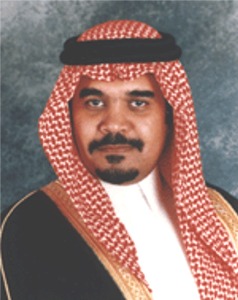
Prince Bandar bin Sultan, former Saudi ambassador to the United States and now head of Saudi intelligence.
Even as President Barack Obama lobbies Congress for a limited war resolution against Syria, some members of his national security team are hoping that the international crisis can be used to break the diplomatic impasse that has blocked Syrian peace talks, particularly by forcing the hand of Saudi Arabia.
This view holds that Saudi Arabia and particularly its intelligence chief, Prince Bandar bin Sultan, have emerged as the chief obstacles to a cease-fire and peace talks. Bandar, the well-connected former ambassador to the United States, is seen as the principal backer of the most radical Islamist fighters seeking to oust the Syrian government and unwilling to join negotiations.
You might not know it from reading the mainstream U.S. press, but Syrian President Bashar al-Assad has repeatedly agreed to participate in proposed Geneva peace talks and to consider a new governing structure. It is the U.S.-backed opposition that has consistently refused to attend, laying down a series of preconditions.
Yet, the preferred narrative of the U.S. press has been that the Obama administration must ratchet up the military pressure on Assad to force him to the bargaining table, a storyline that fits with the beloved image of the U.S. side in any dispute as the peacemakers and the other side as the warmongers.
For instance, New York Times columnist Nicholas D. Kristof has become the latest "liberal war hawk" to urge Obama to bomb Syrian government targets and thus reverse the decline of the rebels' military fortunes. On Thursday, Kristof wrote that the Assad regime has "lately had the upper hand in fighting, and airstrikes might make it more willing to negotiate toward a peace deal to end the war."
However, Kristof and other journalists who promote this myth are misleading the American people, much as many of their colleagues did a decade ago on invading Iraq. In Syria, the reality is that the United States has been unable to get the opposition to the bargaining table, after the Russians succeeded in persuading Assad to send government negotiators.
The rebel leaders have offered a host of excuses why peace talks can't start now: they want the U.S. government to give them sophisticated weapons first; they want all Hezbollah fighters from Lebanon to withdraw; they want to be in a winning position before talks begin; they want Assad to agree to resign as a precondition of talks.
In other words, the fractious rebels, whose most effective fighters are allied with al-Qaeda, don't want peace talks; they'd rather wait for the United States and other outside powers to be drawn into the civil war and ensure Assad's ouster.
However, such an outcome also could make Syria the new hotbed for terrorism in the Middle East and open the door to genocide against Syria's Alawite minority, adherents to a branch of Shia Islam who include the Assad family. Some Syrian Christians, allied with Assad, also fear violent reprisals if the Sunni-dominated rebels prevail, a particularly frightening thought for ethnic Armenians whose ancestors fled the Turkish genocide a century ago.
The real possibility of rebel-inflicted atrocities was underscored Thursday by the release of a video showing Syrian rebels executing captured Syrian soldiers, amid verbal threats to exterminate the Alawites. Russian President Vladimir Putin also has cited a video of a rebel commander eating the internal organs of a slain government soldier.
Wasting a Crisis
Though many of Obama's "tough guy/gal" advisers still seem eager to launch missiles against Syrian government targets to punish Assad for an alleged poison gas attack on Aug. 21, at least a few aides still hope that the impending attack can be averted and the international urgency over the crisis can be turned instead toward promoting a peaceful settlement of the conflict.
Such a move would represent a geopolitical version of former White House chief of staff Rahm Emanuel's adage, "never let a serious crisis go to waste." I'm told that Obama has recently sought out advisers beyond his inner circle regarding how this maneuver might be pulled off, after he found himself boxed in by his clumsy rhetoric about "red lines" and inattention to the worsening Syrian crisis earlier this year.
Despite the seemingly chilly contacts between Obama and Putin at the G-20 summit in St. Petersburg, the two leaders are said to be acting in greater concert on this crisis than the mainstream U.S. press understands. U.S.-Russian cooperation is considered crucial to push aside the many obstacles to a negotiated outcome for Syria's civil war.
The greatest difficulty in achieving a breakthrough on peace has been how to dislodge the obstructions of Saudi Arabia and Israel to Syrian negotiations. The Saudis and the Israelis, who have developed a de facto alliance on a range of regional issues from Egypt to Iran, see advantages in continuing the conflict in Syria.
While Saudi Arabia may dream of an outright rebel victory and a Sunni-ruled Syrian state -- breaking the current "Shiite crescent" from Iran through Iraq and Syria to Hezbollah enclaves in Lebanon -- the Israelis seem to prefer having Syria continue bleeding without a clear-cut victor.
As the New York Times reported Friday, "Mr. Obama's limited strike proposal has one crucial foreign ally: Israel." In the Israeli view, getting the U.S. military to batter Assad's forces would also put Iran on the defensive and might speed the day of an American attack on Iran's nuclear facilities.
(Note: You can view every article as one long page if you sign up as an Advocate Member, or higher).





